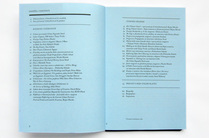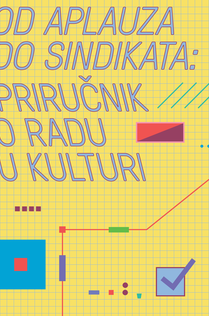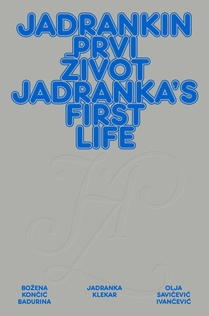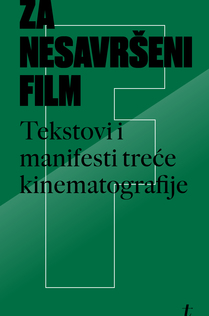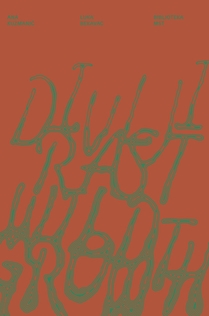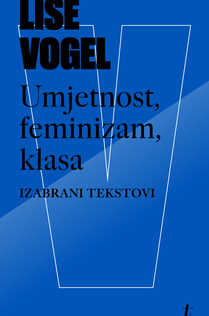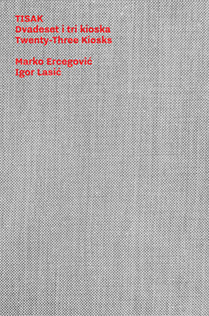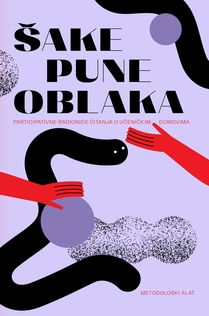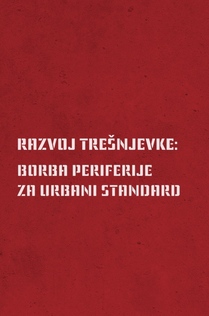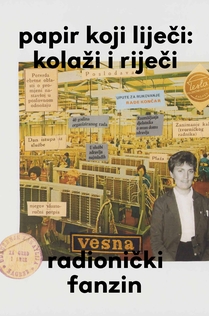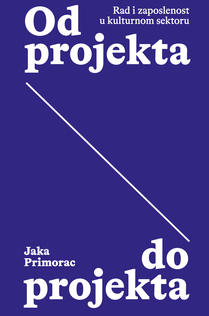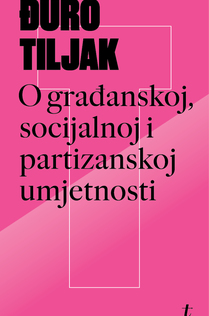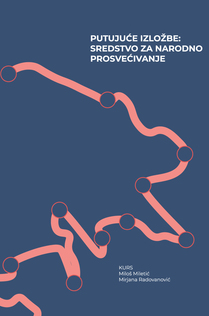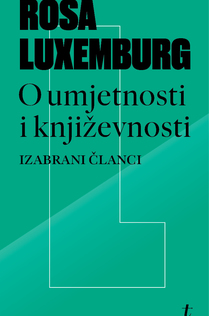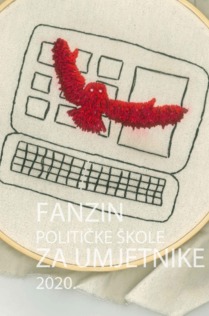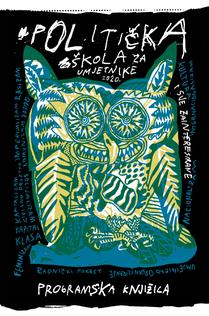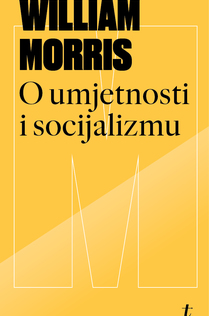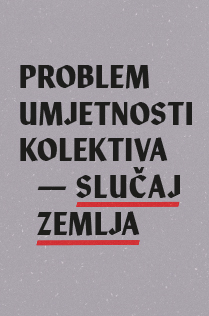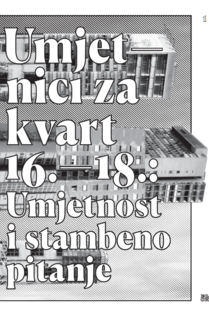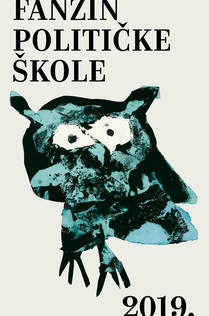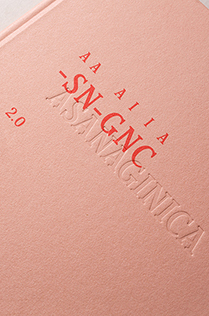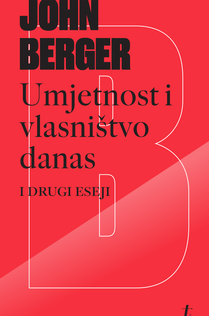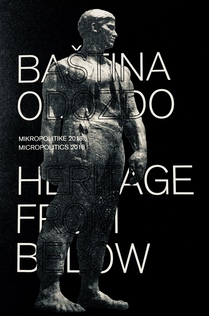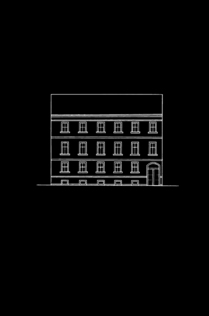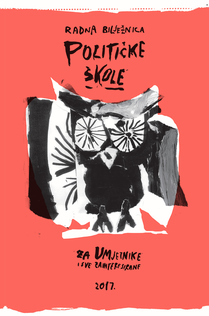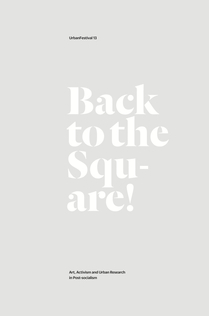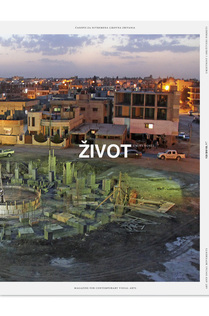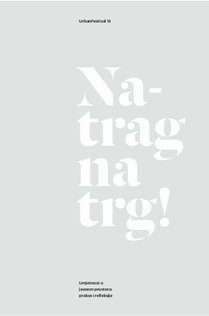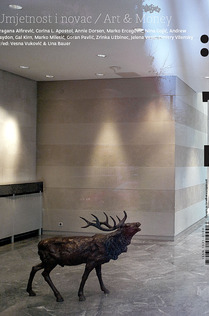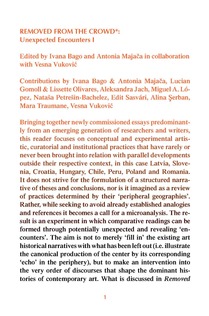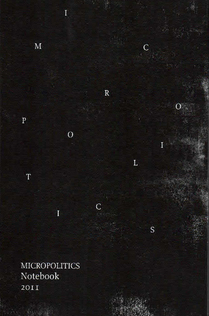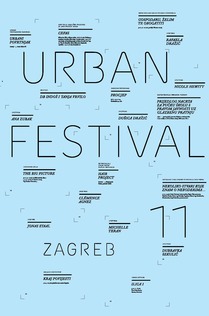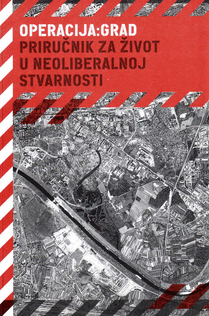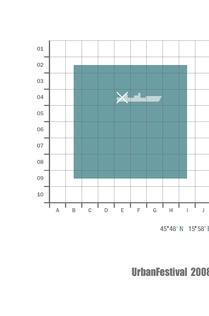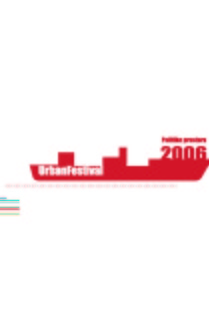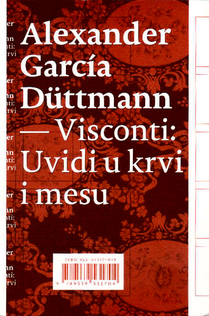UrbanFestival 2011: Out of Control
publisher: [BLOK] | Lokalna baza za osvježavanje kulture
editors: Ana Kutleša, Ivana Hanaček, Marijana Rimanić
authors: Ana Kutleša, Ivana Hanaček, Marijana Rimanić, Bojan Mucko, Irena Borić, Ana Kovačić, Uroš Živanović, Igor Bezinović, Sarat Maharaj
design: Hrvoje Živčić i Dario Dević
language: Croatian and English
year: 2011
price: 10 €
With this year’s UrbanFestival 11 we sought to broaden the field of artistic interventions to cover the ‘multiplicity of social spaces’, since we are aware of the heterogeneity and complexity of the ‘public context of art.’ We insisted on inconsistency, kept falling out of conventional rhythm, and disturbed the established borderlines between art and activism. We insisted on a (more) long-term presence in the public sphere, explored the possibilities of participatory projects, developed the method of shock therapy, opened up the issue of the political potential of casual passers-by, intervened into the media, launched an experimental educational project, raised the question of “visual art as knowledge production,” dragged the hidden memory of the city into daylight, opened up private courtyards and even apartments for public…
The structure of this catalogue reflects the festival itself: UrbanFestival 11 began in spring, in a working atmosphere, with the project of long and continued cultivation of an Urban Vegetable Patch, and ended in October with self-reflection: a series of lectures, presentations of art projects, and debates in a four-day programme at Kino Grič. However, it didn’t end completely – projects such as the Draft Proposal for a Public School with Musical Accompaniment and Urban Vegetable Patch will continue to evolve on their own.
We are still educated in an alternative way, and the garden is only having its winter rest.
Such a dispersed structure reflects our wish to stretch the borders of the festival format as much as (im)possible, and to make all the research, the processes, the conditions of production, and also the reflection, effects, reactions, and layers of meaning, as visible as the product itself – be it performance or object – only from a temporal distance. In other words, in the time of cultural production that has succumbed to the laws of the market, we insist on long duration, processuality, research, exploration, and self-criticism.
Therefore we realized our festival in forms that make these goals possible: beside workshops, lectures, and debates, the art projects themselves often included the creation of discursive space in their concept, as for example in the theatre show adaptation for public space Cepheus where the public was directly talked to and engaged in a conversation or in media actions of the works Master I want to make you rich and The End of History. Thereby we adopted two main approaches, similar, and yet different: participation and collaboration. Some of the projects redefined the notion of audience in their concept and intent, partly also in realization, by turning the spectator into the one who took over control over the project, changing its format. Other projects immediately renounced at classical authorship, which made it difficult to classify them. The concept of authorship has been defined as a proposal, a call for cooperation, an idea that is tried out, modified, and realized collectively, among the collaborators.
Loss of control was a phenomenon that occurred sporadically throughout the six months of the festival: sometimes intentional, at other times accidental. Sometimes control was lost despite all intention, while at other times it occurred unexpectedly. That refers both to the projects themselves and to the festival format, and reflects the context in which we work, in which we talk about public space. The key issue is no longer how to activate the citizens to act, but rather how that action should look like in order to yield results. That is the context in which we considered it necessary to open up space for the uncontrolled, for the untested methods, a combination of something that is incompatible, and for unpredictable outcome, even at the price of failure. To paraphrase Damir Bartol Indoš, we finally wanted to get from walking on the knife handle to walking on the edge.
